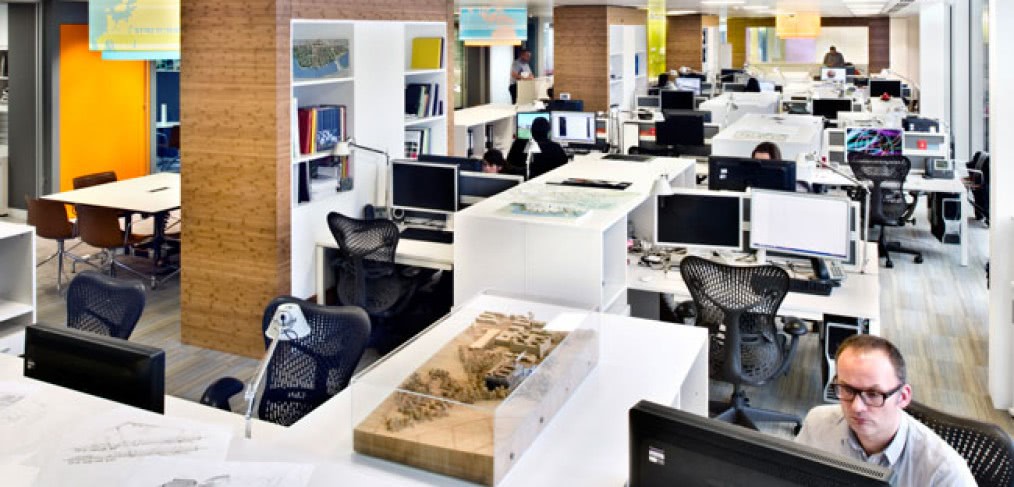
Change Management for the Built Environment: Making the Case for Change
Change management and employee engagement are extremely topical as we discussed in the Top Workplace Trends for 2014, but what exactly does “change management” mean? Per the Association of Change Management Professionals, change management is “a deliberate set of activities that facilitate and support the success of individual and organizational change and the realization of its intended business results.”
Many companies see tremendous value in change management, particularly when planning for and implementing major organizational changes; however, change management often goes by the wayside when dealing with changes in the built environment.
Why…and When?
While it may not seem as dramatic as a merger or complete business reorganization, change in the built environment and/or the way it is used can cause major concern amongst staff. In the 2013 Global Benchmarking Survey, New Ways of Working LLC found that people issues remain the top barriers to successful workplace change implementation:
Types of changes in the built environment that might require change management include, but are not limited to, new space (new facility or renovation), new types of space (open plan workstations vs. offices), new tools and technology, new policies (such as mobile work), or any combination thereof.
What’s Happening with Others?
In the recent past, we observed a focus on communication around moves as the main change management activity; essentially letting people know how to use new spaces, how to use tools, and then providing a welcome kit.
The current trend is toward a greater emphasis on truly engaging employees. This includes a thorough change management program with enhanced communication, greater opportunities for true engagement, more training, and post-change reinforcement activities – all focused on building understanding of the change (and “what’s in it for me”) and ensuring employees are ready, willing, and able to make the change.
Some Compelling Stats…
Businesses understand that the people costs are much higher than the costs of a workspace itself. According to the U.S. Department of Labor, salaries and benefits comprise nearly 90% of an employer’s costs; this includes both productive time and unproductive time (absenteeism and presenteeism):
This underscores the importance of the impact of the workplace on the way employees perform. The Commission for Architecture and the Built Environment finds that “the workplace is responsible for 24% of job satisfaction, and that this can affect staff performance by 5% for individuals and (because of the benefits of improved interaction) by 11% for teams.”
During workplace change, a strong change management approach can help address the issues of productivity by impacting satisfaction: Gallup found that companies with the most engaged employees have significantly higher productivity, profitability, and customer satisfaction than those with the least engaged employees.
Making an Impact
While it is easy to say that engagement is important, there is always question as to how impactful change management programs are. Prosci’s benchmarking studies (conducted regularly since 1998) show that projects effectively applying change management are six times more likely to meet their project objectives, and twice as likely to stay on budget:
These metrics and findings are helping companies understand the importance of change management and communicate the value of investing in a solid change management program to the people making decisions about resources and funding.
Jodi Williams and Kim Heartwell will be speaking about Change Management at IFMA World Workplace in New Orleans this September. Hope to see you there!



